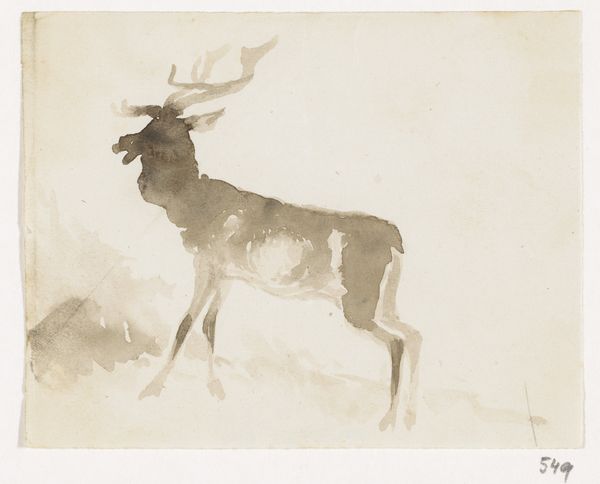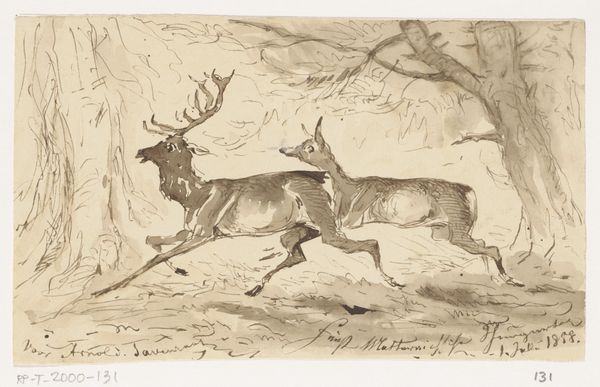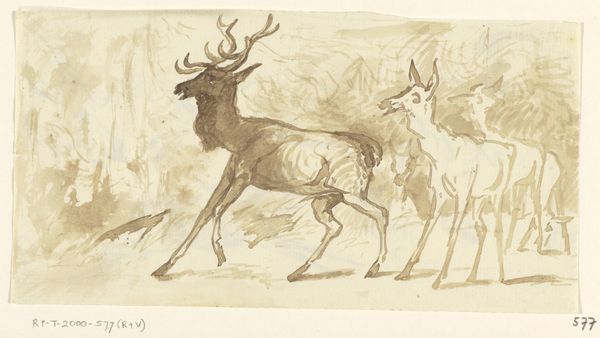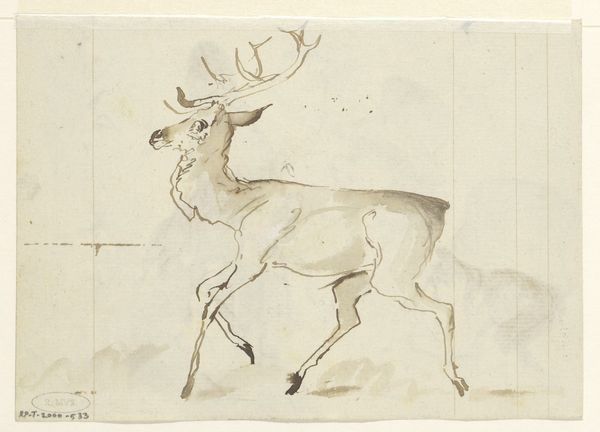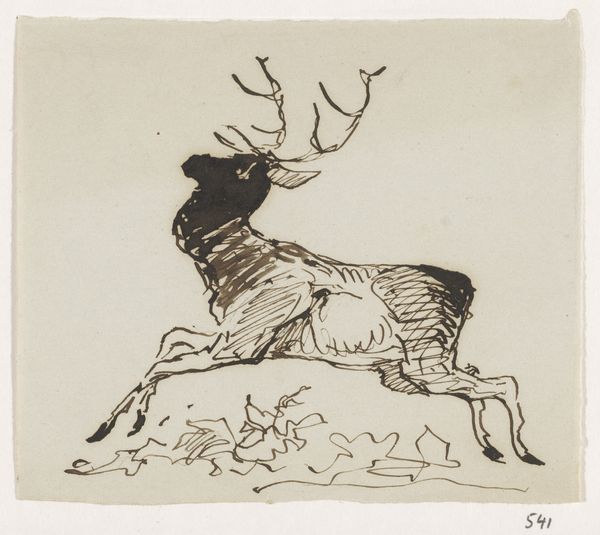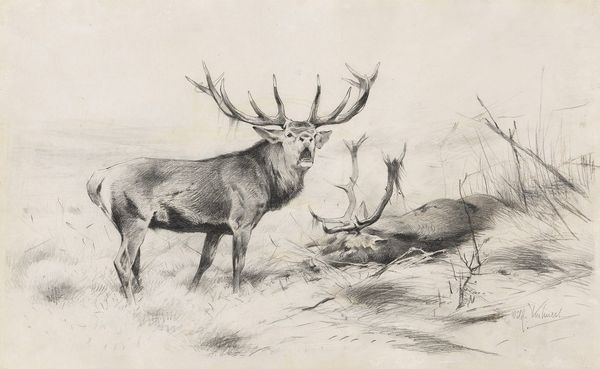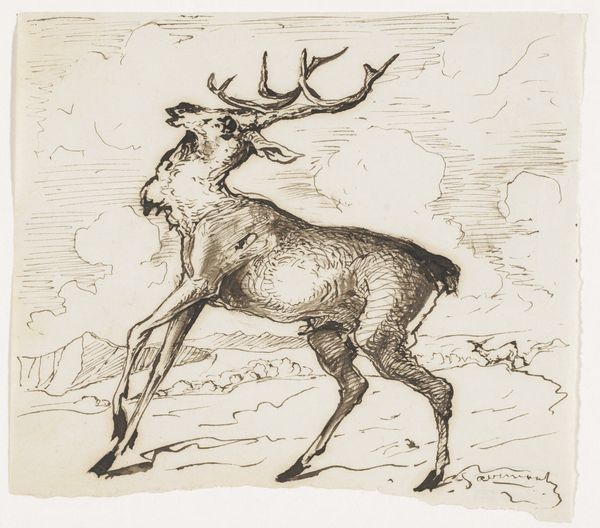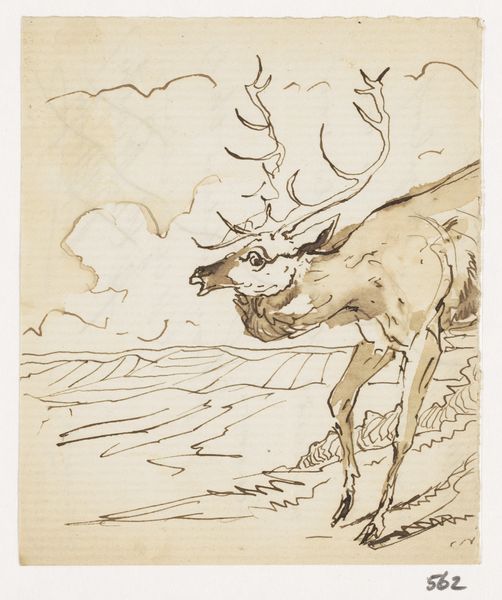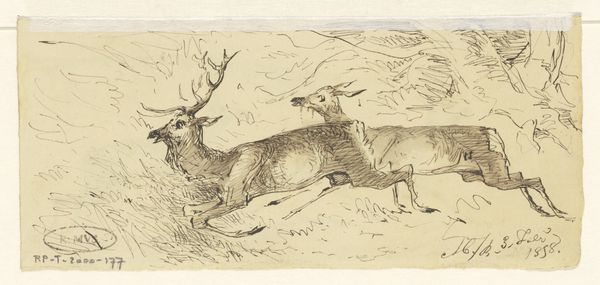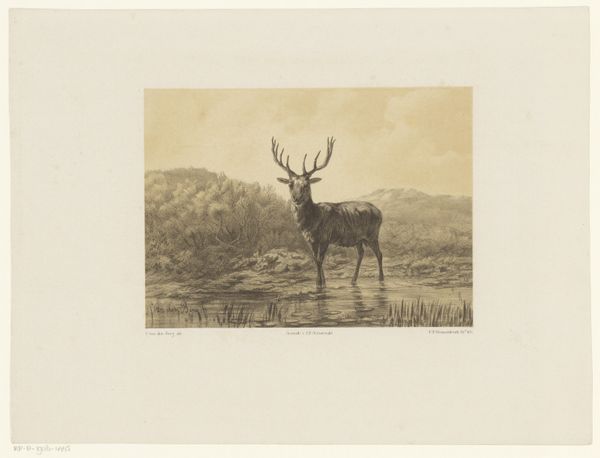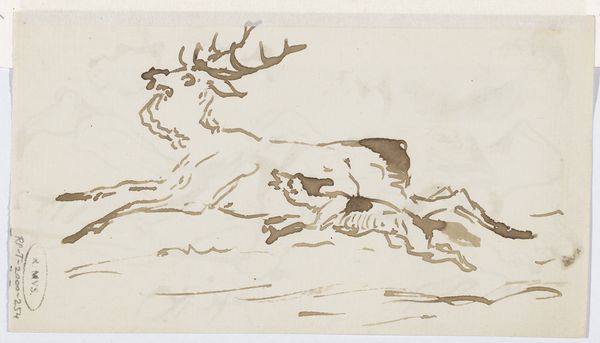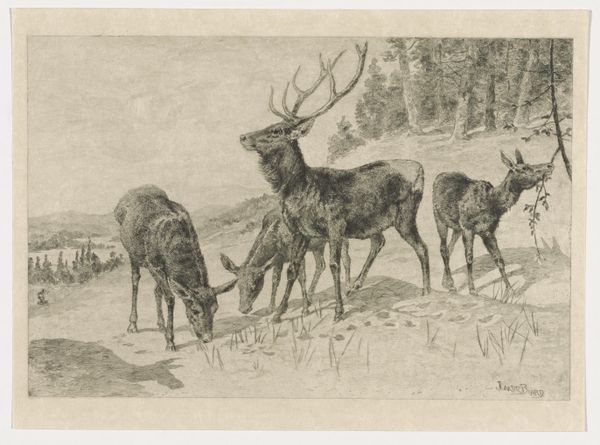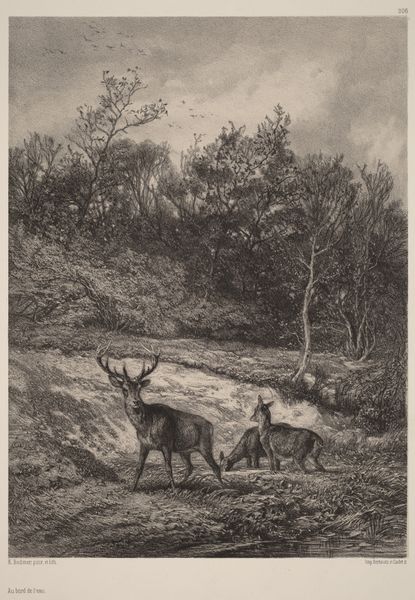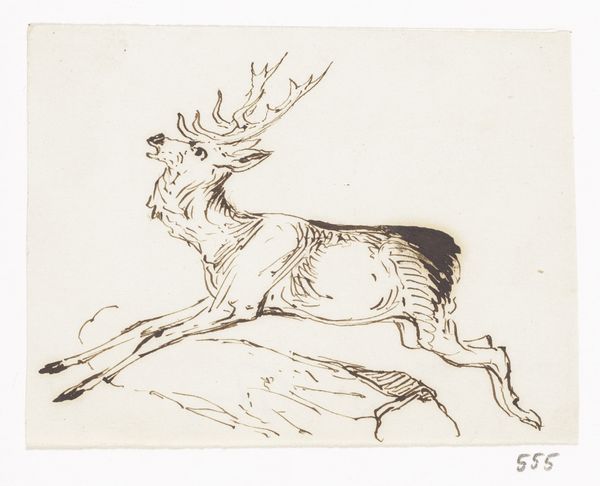
drawing, watercolor, ink
#
drawing
#
landscape
#
charcoal drawing
#
figuration
#
watercolor
#
ink
#
watercolour illustration
#
watercolor
#
realism
Dimensions: height 133 mm, width 213 mm
Copyright: Rijks Museum: Open Domain
Johannes Tavenraat made this expressive drawing with pen in brown ink and brush in grey in 1858. It captures a stag standing atop a rocky plateau, its head raised in a powerful roar. The image evokes the Romantic movement’s fascination with nature's sublime power. In 19th-century Netherlands, artists often turned to the landscape to express national identity and cultural values. This drawing reflects a growing interest in wildlife and the natural world, which was also driven by scientific exploration and conservation efforts. The depiction of the stag may symbolize the untamed spirit of the Dutch landscape. To fully understand this artwork, we might explore the cultural significance of hunting and wildlife in 19th-century Dutch society through periodicals and hunting records. This helps us see how Tavenraat's drawing is not just a depiction of an animal, but a reflection of broader cultural and social attitudes towards nature and national identity.
Comments
No comments
Be the first to comment and join the conversation on the ultimate creative platform.
